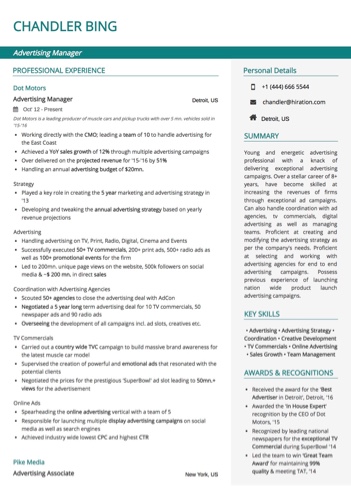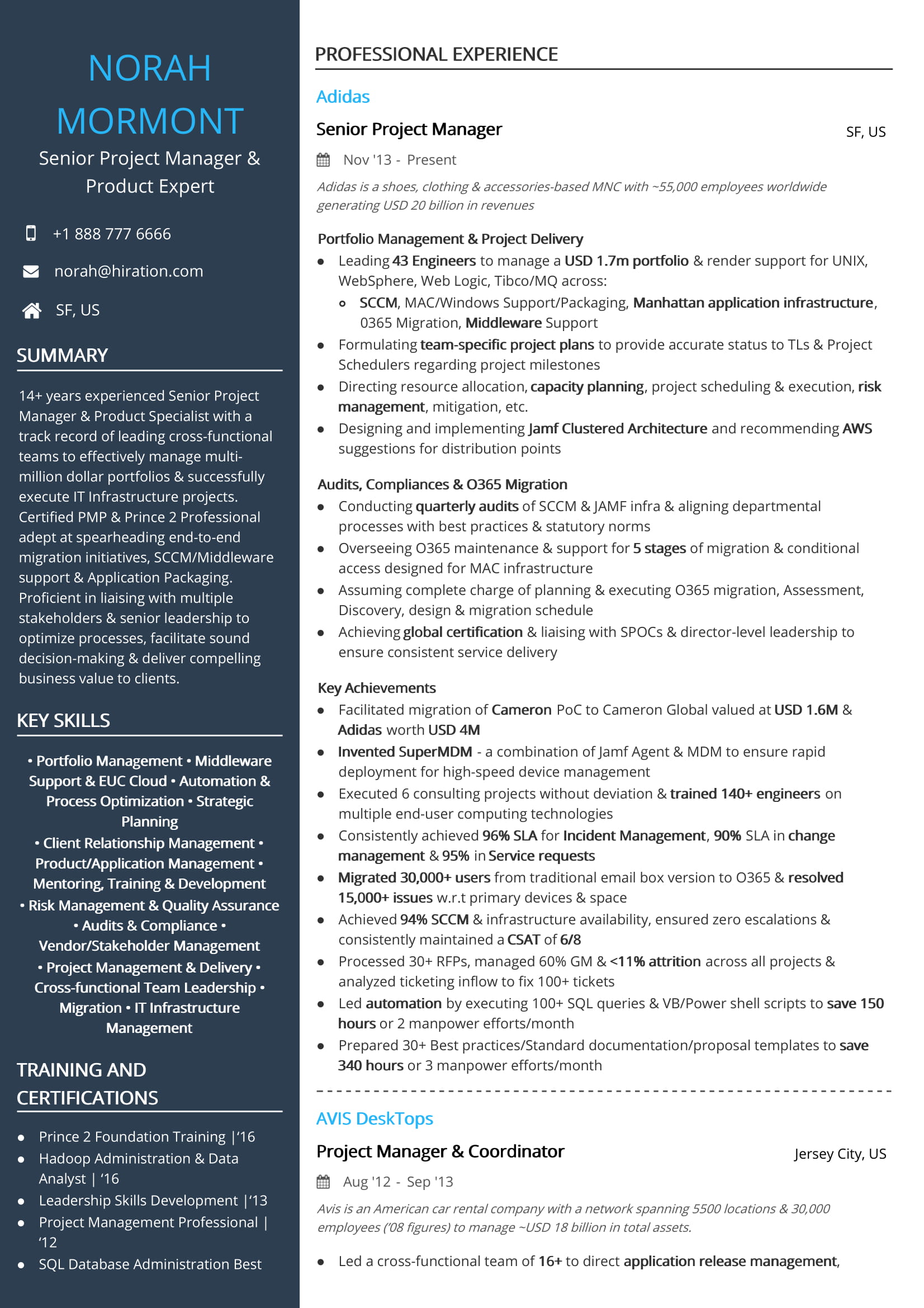350+ Professional Resume Examples with Writing Guides

Finance and Accounts Resume Examples: Choose from a wide variety of Finance and Accounts Resume examples ranging from Financial Analyst to Finance Manager. Also, take a look at the premium Finance and Accounts Read more...
Administration Resume Examples: Choose from a wide variety of Administration Resume examples ranging from Junior Administration Manager to Administration Head. Also, take a look at the premium Administration re Read more...
Data Science Resume Examples: Choose from a wide variety of Data Science Resume examples ranging from Junior Data Scientist to CIO. Also, take a look at the premium Data Science resume templates designed by our Read more...
Business Development Resume Examples: Choose from a wide variety of Business Development Resume examples ranging from BD Associate to BD Head. Also, take a look at the premium Business Development resume templa Read more...
Choose from a wide variety of Customer Service Resume examples, ranging from Customer Service Associate to Customer Service Director. Also, take a look at the premium Customer Service resume templates designed Read more...
Banking/BFSI Resume Examples: Choose from a wide variety of Banking and BFSI (Banking, Financial Services & Insurance) examples ranging from Banking Executive to C-level Professional and Area Manager (Insurance Read more...
Choose from a wide variety of Performing Arts-based resume examples ranging from artists and musicians to actors and fashion models. Also, take a look at the premium Performing Arts resume templates designed by Read more...
Project Management Resume Examples: Choose from a wide variety of Project Management Resume examples ranging from Project Director to Project Manager and Project Coordinator. Also, take a look at the premium Pr Read more...
Choose from a wide variety of Teaching and Academia-based Resume examples ranging from Primary and Secondary School Teachers to Research Scholars and Professors. Also, take a look at the premium Teaching resume Read more...
A resume holds the power to make and break your career. In today’s times, just being great at what you do is not enough. If you’re highly skilled but are unable to showcase that on paper, you won’t get that job you’ve always wanted. It’s that simple. You need to be a great resume tactician to cross over to the realms of your dream job - only then can you make your dream life come true. Resume writing is an art, and not everyone is a ‘Leonardo da Vinci’.
So here are some industry-specific resume examples to guide you through this process.
IT Resume Examples
IT skills on a resume simply refer to the IT-centric technical skills that you possess as an IT professional.
Your IT skills can be divided into two parts:
- Core Skills
- Supplementary Skills
Your core skills mainly comprise the skills that you have accumulated over the years as an IT professional. These may include the following:
● Server Administration
● End-user Servicing
● Network Security
● Troubleshooting
● Backup & Recovery Strategy
● Installation & Configuration
● System Administration
On the contrary, your technical IT skills will comprise your IT-centric knowledge of tools and technologies such as:
● Cloud Technologies: Amazon Web Services, Microsoft Azure
● Cloud Services: VPC, EC2, ELB, EBS, Auto Scaling, S3, IAM, Route 53 Cloud Trail, Cloud Watch, Glacier, SNS, RDS, DynamoDB, CloudFront, Cloud Formation
● Monitoring Tools: Cloud Watch, Wire shark
● Scripting: Python, Shell
● Version Control: SVN, GIT
● Server Support OS: Servers O/S Support: Windows 2003/2000/2008 Server/Macs-X server, Red Hat Linux Server 5.0/ 4.2
● Client Support OS: Windows XP Professional, XP2/XP3, Windows 7, 8.0, and Windows10/MacOs 10.3.1 versions
● Hardware: HP ProLiant ML115/ML350 G6, ML150 Servers, HCL Tower Servers, XW 4600, Cisco Switches & Ethernet hubs
● Backup/Storage & Business Process Management (BPM): PEGA, Provision & Metastorm; DVD & Storage backups
● Database: Oracle 8i/10g, MS Office Suite and Excel SmartSheet (Cloud-based)
● Networking & Tools: Monitoring Leased Lines, Recovery tools like Hiren's BootCD
Based on the type of company you work for and the roles & responsibilities of your job title, you may have a more varied list of skills that you can communicate under your core key skills.
How do you create an IT Resume?
Creating an IT Resume is not as complicated as you think it might be. Creating an IT Resume is a simplified endeavor that can be accomplished in 3 easy steps.
So here are a few actionable tips to help you draft your IT Resume with ease:
1. Include these must-have sections in your IT Resume:
If you are unsure of what to put and what not to put in your resume, knowing the resume outline you should follow can help.
Incorporating these indispensable sections in your resume is the best place to start. Here’s a list of sections that your resume should have:
● Header
● Personal Information
● Profile Title
● Objective/Summary
● Key Skills (both core skills and technical skills)
● Professional Experience
● Education
● Certifications
2. Choose a resume format that best compliments your professional situation:
When it comes to drafting an IT resume that is nothing short of perfection, it is important to choose aresume format suited to your professional situation and the career stage you are in.
● Reverse Chronological Resume Format: The reverse-chronological format is the most famous and well-known resume format that is most preferred among the professional recruitment circle. It is both ATS-compliant and recruiter-friendly.
This resume format is ideal for mid-level and senior-level professionals who have a long history of work experience to list in their resumes.
● The Combination Resume Format: The combination resume format puts equal focus on your skill sets and the timeline of your work experience. Use this resume format if you are an entry-level IT professional, have been switching jobs too frequently, or have a career gap that is hard to explain.
● Pick the right resume length: Should your IT resume be a one-page resume or should it be over two pages? It all depends on your work experience.
Ideally, if you have work experience of fewer than 10 years, try to confine your resume length to 1 page. If it exceeds the 10 years limit, you can write a 2-page resume. However, that said, don’t try to mold your resume into a one-page document if the details of your work experience cannot be incorporated into it.
Public Relations Resume Examples
What are public relations skills?
Public relations skills are skill-sets unique to a PR Professional.
Your public relations skills are important because they help you outline the nature of your expertise, which further helps you advance your job hunt.
Here are a few skill-sets that are unique to a PR Professional that you can easily incorporate into your resume:
● Public Relations
● PR Strategy
● Press Release
● Press Conferences
● Social Media PR
● Brand Management
● Media Outreach
The idea is to categorically identify your PR core skills and replicate them in your resume.
Grouping them under a distinct ‘Key Skills’ section is a great trick because it helps a potential employer identify your functional PR skill sets in one go.
Check out our AI-enhanced resume builder for ready-to-use resume examples for public relations!
Best Technical Resume Examples
How do I write a technical resume?
To write a technical resume, you simply have to follow the rules of resume writing. The only exception here is that your resume should focus on your technical skills and projects because these attributes make you qualified for a technical profile.
Here are some quick tips to help you effectively curate a technical resume:
● Prioritize relevant certifications, projects you have worked on, and internships you have done if you don’t have work experience:
This should be the highlight of your resume if you are a fresh tech graduate with no relevant work experience to your name.
Since tech professionals are shortlisted for an entry-level job based on their domain knowledge and expertise, something as simple as presenting relevant projects, certifications, and internship experience can help you elevate your resume and fine-tune it for shortlist success.
Put them under relevant sections such as:
1) Internships
2) Certifications
3) Projects
● Outline the details of your professional experience if you have relevant work experience:
If you are a technical professional with years of relevant work experience, it is best to skip mentioning your past internships, as your current work experience holds more weight.
Unless you’re planning to skip to a different industry and you have done relevant internships in the past.
Instead, you should focus on presenting your work experience details in your tech resume in an effective way.
○ Use the reverse-chronological order to organize your work experience details, as doing this will make it easy for a recruiter to easily evaluate your career trajectory.
○ Use one-liner points to communicate your everyday work responsibilities, as it helps make this information easy to read and comprehend for a recruiter evaluating it.
○ Use achievement figures to show the effects of your professional contributions. Example: “Designed user-friendly websites leading to a90% improvement in the user experience of website visitors”.
● Endorse your technical skills in your resume:
We cannot stress this enough. Your technical skills should be the focus of your technical resume.
Work experience or no work experience, it is your skills and proficiency in your skills that will act as a make-or-break element in helping you get the coveted shortlist you are after.
For example, the operating systems you are adept at, the programming languages you are efficient in, and other tech-specific skill-sets should be highlighted in your technical resume.
Most importantly, you should segregate your core tech skills from your technical skills in your resume by grouping them under distinct sections such as:
1) Key Skills
2) Technical Skills
What is a technical skill on a resume?
Technical skill on a resume is a presentation of a professional’s technical skills.
Based on the extent of their tech expertise, here are some key technical skills that most professionals may or may not have in their technical resume:
● Cloud Technologies
● Cloud Services
● Monitoring Tools
● Scripting
● Version Control
● Server Support OS
● Client Support OS
● Hardware
● Backup/Storage & Business Process Management (BPM)
● Database
● Networking & Tools
How long should a tech resume be?
The dominant industry consensus is that your tech resume should ideally be a one-page resume, especially if the professional has less than 10 years of work experience.
However, a one-page resume is not a rule set in stone. You should not try to compartmentalize your resume and fit it into a one-page mold if that one page is not enough to convey the points that you need to get shortlisted.
If you’re a tech professional with over 10 years of work experience, you are free to write a two-page resume.
USA Jobs Resume Examples
How do I write a US job resume?
To compose a resume for a job in the United States, you should make sure that your resume satisfies the basic rules:
● Follow the resume norms of the United States:
If you’re new to the USA or are a native, knowing the unsaid resume guidelines would do wonders for your resume. Do your research and make sure that your resume is compliant with the resume writing norms that are followed in the USA.
● Use standard American English:
Do not follow British English while composing a resume for a job in the United States. Do yourself a favor and drop the U’s.
For example, if you’re writing a resume for a job in the United States, change labour tolabor.
● Include relevant details:
A major blunder that most professionals make is detailing irrelevant information about their professional lives that just don’t make sense.
A resume that fails to communicate relevant information will most likely end up in a big pile of resume rejection lists. So make sure that your resume is relevant to the roles that you are targeting.
If you have satisfied these standard rules, here’s a list of what not to include in your resume:
● Extremely personal details:
Details such as your marital status, parent or spouse names, marital status, or identification numbers should be strictly avoided when you draft your resume. Why? Because they can lead to biased hiring and in the USA, there are strict guidelines in place to avoid this.
● Complete house address:
Recruiters are concerned with your location, as this is indicative of your location preference for a particular job. As such, you should strictly only mention your city and state details in city/state code format.
It follows that you should strictly avoid bulking up your resume with trivial details such as your complete house address.
● Reference information:
Unless you are explicitly asked to document the details of the people who are willing to recommend you, leave out the reference information details in your resume.
Best Resume Examples: (For experienced professionals & students)
Resume Examples for jobs with no experience
Are you new to the workforce or aspiring to bag your first job?
If the answer is “yes”, here’s an outline of the top things that every entry-level worker should implement in their resume:
● Single-out your skills:
Every professional starts somewhere and there’s a big job market for fresh talent.
The theoretical knowledge that you have accumulated during the years of your education, combined with any relevant skill-set that you may have amassed, should be effectively communicated in your resume.
While you do this, make sure that you highlight your skills under a distinct “key skills section” to enhance the visibility of your skills.
● Communicate your internship details:
Internships are major stepping stones to landing your first job as they are telling of the nature of work that you have been exposed to. It also gives the recruiter a sense of the responsibilities you can be expected to handle effortlessly.
Thus, if you’re an entry-level worker, mentioning your internship details is a must.
While you do so, try to show how meaningful your internship was, highlight your achievements in the internships you have done, and show that these skills are relevant and transferable.
● Talk about your volunteering experience:
When it comes to hiring candidates who have not formally worked in a professional workspace before, factors such as their volunteering experience prove to be extremely helpful because it is a reflection of the professional’s character and compassion.
Whether you volunteered in an old age home or a shelter for cancer patients, don’t shy away from incorporating these details in your resume, especially if you have plans to land a job in an NGO.
● List your certification details:
For budding professionals who are yet to make their mark in the world of employment, certifications matter.
Having an industry-relevant skill-set gives you an advantage over those professionals who are not certified and proves to be extremely helpful when you’re looking to join the workforce.
Work Resume Examples (for experienced professionals)
If you’re an experienced professional, there’s a lot that you can do with your resume.
If you have work experience, your job is half done. The next step is to leverage the information of your professional engagements in your resume.
Here are a few tricks that can you help you draft an impeccable resume:
● Your profile title should communicate your roles effectively:
This is extremely important for you if you are an experienced professional because it stands as a hallmark of your professional identity.
Something as simple as your profile title can communicate important points, such as your latest designation, your seniority level in your chosen industry, and the salary package that you are eligible for.
For example, if you are a Marketing Manager, you will be entitled to a higher ranking and higher paying job than a Marketing Executive who has less exposure and industry expertise than you.
Your role is to communicate your profile title detail accurately.
● Talk about your professional experience in reverse chronological order:
Whether you have worked in one single organization or multiple organizations, make sure that you document the details of your work experience in reverse chronological order by showcasing your most recent work experience first followed by your older experiences.
Doing this helps a recruiter quickly identify your most recent and relevant work experience first.
● Leave out irrelevant information:
When it comes to drafting a resume for experienced professionals, your resume mustn’t go overboard with information that seems to be going nowhere.
For example, if you have any irrelevant information or volunteering experience that no longer aligns with your career goals, use your judgment call to decide if it will help you advance your job application in any way. If it doesn’t, it is probably wise to leave it out.
Student Resume Examples
Whether you’re an experienced professional, a recent graduate, or a student - everyone needs a resume.
Students must have a shortlist-worthy resume early on because it helps them formulate their accomplishments in their resume, which helps them become job-ready at an early stage of their career.
Here are a couple of tips to help you curate a student resume:
● Keep your resume relevant and crisp:
While writing a one-page resume is not a rule set in stone, it is probably ideal for students to keep their resume confined to a one-page document.
Keep your resume informative, relevant and focus on championing your skills. This brings us to the next point.
● Showcase your skills:
Your skill-sets are important. Whether you have work experience or not, what matters at the end of the day is the productivity you can bring.
Having the basic industry knowledge and relevant skill-sets is what matters since it demonstrates that what you lack in experience, you can more than make up for it in your skills.
So make sure you effectively highlight your skills in your resume under a separate section titled the ‘key skills’ section.
● Highlight relevant certifications, internships, and volunteering experience:
Not having any professional experience is not disastrous because quite frankly, everyone begins somewhere. As a student who is still pursuing their undergrad studies, it is wildly unfair to be expected to have professional engagements. Everyone understands that.
But you can make the most of your student resume by highlighting aspects of your professional life such as the internships you have done, your volunteering experience, and certifications (if any).
Industries
Operations Resume Examples
What are the two major responsibilities of an Operations Manager?
An Operations Manageris a professional who is delegated with the task of analyzing process haps and improving the organizational process while working to effectively improve everyday operations.
While the roles & responsibilities of an Operations are far-reaching, the main responsibilities that come with holding the job title can be condensed into two main points, such as:
● Making important decisions such as policymaking, planning, and strategy.
● Developing, implementing, and reviewing operational policies and procedures.
Alongside this, an Operations Manager is also responsible for overseeing high-level HR duties and budgeting.
What skills are needed for operations management?
Operations Management is a highly coveted responsibility.
You need to hold a degree in operations management or a related field to be eligible for an Operations Manager job.
Some basic skills that the job demands include:
● Operations Strategy & Execution
● Relationship Management & Negotiation Skills
● Financial Management
● General Finance & Budgeting (profit and loss, balance sheet, and cash flow management)
Data Science Resume Examples
What is a data scientist job description?
Simply put, a data scientist job descriptionis a job posting for data scientist jobs that explicitly highlights the qualities and skill-sets that an organization looks for in the ideal candidate.
An organization’s demand for a data scientist might take into account a bunch of factors such as:
● Relevant work experience:
Most organizations look for data scientists with relevant work experience. On the contrary, some organizations may be open to hiring data science graduates who may not have any professional experience but may have the right qualifications and skill-sets for the job.
● Projects and certifications:
Organizations almost always look for data science professionals who have worked on a relevant data science project as it showcases the industry readiness of the professional.
By showcasing certifications and the project details in a resume, any aspiring data scientist or experienced professional would be able to demonstrate their relevance for the data science job.
Is data scientist an IT job?
The answer to this question is yes.
Data Scientist is an IT job and one of the most in-demand and trending professions of the time.
So if you’re an IT professional with hopes to advance your career in a thriving industry domain that is here to stay, you should probably up-skill and get acquainted with the tricks & trades of this profession.
Administrative Resume Examples
● What is the job description of an administrative assistant?
What are examples of administrative skills?
Administrative skills include a range of skill-sets that showcase the administrative capabilities of a professional. You may be anadministrative assistantor an administrative manager, there are certain core skills that you are expected to be proficient in.
Here are some examples of administrative skills:
● Report Making
● Time Management
● Strategic Planning
● Office Management
What are the top 3 skills of an administrative assistant?
Listed below are examples of administrative skills that every professional in administration-centric jobs should have:
● Organizational and detail-oriented skills: An administrative assistant regularly deals with admin work. Therefore, an administrative professional must be extremely good at organization. He/she should be extremely meticulous and thorough when it comes to executing a given task.
● Leadership and management skills: Leadership and management are the hallmarks of any administrative assistant-centric job. They are expected to be quick on their feet and great at managing and executing tasks with unmatched leadership.
● Interpersonal communication skills: Being an administrative assistant demands reporting to a senior official and executing a given task. This also requires constantly acting as a point of contact between the senior management and the employees to get things done. So without question, great interpersonal skills are must-have skills for administrative assistants.
What is the job description of an administrative assistant?
The job description of Administrative Assistants includes a range of clerical dutiesin nearly every industry. They are generally responsible for the management and distribution of information within an office. From answering phone calls to taking memos to maintain files, an administrative assistant does it all.
Additionally, Administrative Assistants are often responsible for a range of other functions such as:
● Point of contact for clients
● General and clerical support
● Maintaining the filing system
● Managing calendars
● Scheduling meetings
● Preparing and editing documents
● Prioritizing and managing projects
● Resolving conflicts and critical administrative problems
● Data entry
● Tracking accounting information
● Processing and managing client calls
● Compliance with office policies and procedures
● Coordinating between professionals and departments
Medicine Resume Examples
How do I write a medical resume?
To write a medical resume, simply follow the rules of resume writing.
All you have to do is follow a basic resume outline by organizing information under the following sections:
● Header:
Your name. This is to be written at the extreme top part of your resume.
● Personal Information:
Your contact details such as mobile number, email ID, and location.
● Profile Title:
Your most recent job designation in the medical field. Example: “Registered Nurse”, “Gynaecologist”, “Dermatologist”, etc.
● Summary:
A 3-5 line paragraphs overview of your career highlights & relevant skill sets.
● Key Skills:
The core skills that are specifically applicable to your medical practice.
● Professional Experience:
The details of your professional engagements are in reverse chronological order.
● Internships:
Mention your internships in the medicine industry ONLY IF you are a fresh medical graduate with no relevant work experience. You should skip this if you have extensive work experience.
● Education:
This includes details of your educational qualifications.
● Certifications:
Any relevant certifications you have done.
What is a good objective for a medical resume?
A good objective for a medical resume is one that effectively articulates your suitability for the medical job instead of highlighting a list of things you expect in the organization you wish to work with.
It is to be written by a medical graduate who is looking to land their first job as medical personnel in their chosen field. Just like a resume summary, it should effectively communicate your suitability for the medical job that you are targeting.
Let’s say you’ve completed your nursing certification and are looking for a nursing job. In such a situation, your nursing resume objective should look like this:
“A Certified Nurse with extensive internship experience in nursing and proven expertise in assisting head nurses in deploying patient education and their holistic treatment. Adept at wound treatment and care plan development for patients. Highly skilled in nursing administration and excellent organization skills to provide excellent care to patients under high-pressure situations.”
If you are looking for your first entry-level nursing job, formulating your objective in the above manner will help you make a good impression on the person evaluating your suitability for the job.
Business Development Resume Examples
What are business development skills?
Business development skills are skill sets that are exclusive to a Business Development Professional.
It mainly reflects a professional’s ability to expand the business through various strategies that are targeted to win clients and improve the performance and value of the business.
What do you put under sales on a resume?
Sales being the heart and soul of business development, it needs to be perfectly articulated on a resume. Here are some important things to put under ‘sales’ on a resume:
● The total number of sales you have made on a weekly or monthly basis
● The strategies you deployed to improve the sales of the company
● Use achievement figures to show the extent of your contributions
● Example:
- Liaised with 100+ customers daily to increase sales by 80%
- Executed email marketing campaigns leading to a total sales of $10,000/week
What skills does a Business Development Manager need?
A Business Development Manager needs important skills such as:
● The ability to strategize and execute campaigns for converting business proposals, acquiring new clients, and improving the overall sales of the product/service he/she is responsible for.
● The ability to lead teams to improve the overall business strategy and development of the company that he/she is working in.
Finance & Accounts Resume Examples
What skills should I put on my resume for accounting?
In a resume for accounting, you should strategically present skills that attest to your accounting expertise such as:
- Account Management
- &##xa0; Finance
- Budgeting
- Cash Management
- Audits
- Stock & Inventory Management
How do I make my financial resume stand out?
To make your financial resume stand out, you need to execute each element of your resume.
Here are some basic rules that you can follow:
● Distinguish your core financial skills under a distinct section:
By grouping all your functional skills sets under a distinct section, it becomes easy for a recruiter to identify your skills. If they meet the skill-set criteria that the hiring body is looking for, your shortlist chances will automatically increase.
● Write an impeccable summary:
Your financial resume cannot stand out if the summary is not effectively composed. Focus on perfecting this by articulating the points that make you fit for the financial job that you are chasing.
What is a financial accountant job description?
A financial account job description simply refers to the job advertisement for a financial accountant job. It highlights the qualities that a hiring organization looks for in the desired candidate.
These qualities are often called hiring criteria or keywords. When incorporated into your resume, it helps it stand out and increases its brand value in the eyes of the recruiter.
Sales Resume Examples
How do I write a sales resume?
To write a sales resume, simply follow the rules of resume writing.
Some key areas to focus on are listed below:
● Highlight your achievements using figures and numbers to show your expertise in sales.
● Write an impactful summary that gives an effective overview of your career trajectory.
● Write a one-page resume if your experience in sales is less than 10 years.
● Avoid the use of bulky paragraphs. Instead, use one-liner points to enhance the readability of your sales resume.
How do you describe sales skills on a resume?
Your sales expertise can be presented in a resume by focusing on the following areas:
● Do not give a bland account of your everyday roles & responsibilities that comes with being a Sales Professional. Instead, talk about the strategies you developed and executed to meet a given sales target.
● Use numbers to showcase the extent of your sales expertise. Don’t just state that you generated sales. Instead, talk about the number of sales you generated in a given day/week/month.
● Skill sets such as ‘client management’, ‘customer relationship building’, ‘product consulting’, and ‘client handling’ are all important in helping a sales professional reach their sales targets. Think along these lines and categorically group your distinct sales-centric skill sets under a distinct ‘key skills’ section in your resume.
How do you list sales accomplishments on your resume?
Great tried & tested tactics to list your sales accomplishments in your resume are given below:
● Use a ‘Key Achievements’ section to outline your sales accomplishments.
● Your resume summary is also a great place to brag about your sales accomplishments without going too overboard.
Human Resource Resume Examples
What should I put on my resume for HR?
Every HR resume should include important details such as:
● Header:
Your name. Write it at the top-most part of your HR resume.
● Personal Information:
Your contact details such as mobile number, email ID, and location. This helps a recruiter get in touch with you if your resume is shortlisted for the next round.
● Profile Title:
Your most recent job designation in the HR field. Example: “HR Manager”, “HR Officer”, “HR Head”, etc. Since your profile title communicates your seniority level, it needs to be written to perfection without any exaggeration.
● Summary:
A 3-5 line paragraph overview of your career highlights & relevant skill sets in HR.
● Key Skills:
The core skills that you have cultivated as part of your profession in human resources.
● Professional Experience:
The details of your professional engagements are in reverse chronological order. Talk about your work experience details in HR in this section.
● Internships:
Mention your internships in the HR industry ONLY IF you are a fresh HR graduate with no relevant work experience. Skip this if you have extensive work experience in the HR industry.
● Education:
This includes details of your educational qualifications. For example MBA with specialization in HR Management.
● Certifications:
Any relevant certifications you have done to up-skill according to the latest industry trends. For example, HR analytics is a certification that most HR professionals are acquiring these days. If you’ve done similar certifications, list them down in this section.
What are some human resources skills?
Some human resource skills that are specific to an HR professional are listed below:
● Talent Acquisition
● Recruitment Cycle
● Retention
● Onboarding
● HR Policies & Procedures
● Internal Communication
What is ‘employee relations’ in human resources?
Employee relations in human resources simply refers to the practice of deploying strategies to improve employee experience and retain talent in the organization.
Simply put, it refers to an organization’s efforts to maintain a positive working relationship with its employees.
Customer Service Resume Examples
What should I put on my resume for customer service?
All you have to do is put that information in your resume, which is relevant to the customer service job that you are targeting.
You should customize your resume to suit the needs of the jobs that you are applying for.
A standard customer service resumewill have basic details which are designed to help you land a job. These basic details include:
● Details of your professional engagements to give the recruiter a sense of your career trajectory, your roles & responsibilities, and your achievements under the organizations you have worked within the past.
● Your education and certification details to communicate your basic educational details.
● Your contact number to help a potential employer to get in touch with you.
What are customer service skills?
Customer service skills are those skill sets that a customer service professional deploys to perform their everyday roles & responsibilities.
Some important customer service skills are:
● Customer Engagement
● Client Servicing
● Networking
● Customer Relationship Management
● Multitasking
● Conflict Resolution
● Risk Mitigation
What is a customer service summary?
A customer service summary is a brief overview of a customer service professional’s career trajectory in a short paragraph. It needs to be strategically designed to help you win the job. You need to articulate the points that champion the professional expertise and caliber of a customer service professional.
Here are some key things to put in your summary for your customer service resume:
● The years of your work experience.
● Your career highlights showcase your work achievements.
● Key skills that effectively communicate your professional expertise.
Performing Arts Resume Examples
What is a performance resume?
A performance resume is a resume for professionals in the performing arts.
It is just like every other resume, and like all other resumes, it needs to be tailor-made to get you shortlisted for a job in this industry.
What do you put on a Theatre resume?
Your theatre resume is a combination of information that is designed to help you land a theatre job.
In other words, you need to customize your theatre resume to give you a winning advantage. This means that your resume should be relevant to the theatre job that you are targeting.
Here’s a list of the top 3 things to put in your theatre resume:
● Details of your professional experience:
This communicates your suitability for an acting role (or any other role) in theatre as you go to great lengths to explain the tasks you executed daily as part of your job in the performing arts.
● Education and certification details:
This is especially important for a professional who works in a theatre because it gives them an added advantage. Having a degree in acting or theatre will give you an extra edge, so don’t skip this detail.
● Your contact details:
A recruiter cannot get in touch with you if you fail to do the simple task of presenting your contact information in your theatre resume. So, do yourself a favor and mention your mobile number and email ID.
What is an artist's resume?
An artist resumeis a resume for creative art professionals. It is a resume that should have important details to help you get the artist job that you have been chasing.
If you are in any of these professions, an artist resume is for you:
● Animator
● Art teacher
● Industrial Designer
● Fashion Designer
● Cake Decorator
● Musician
● Illustrator
● Makeup Artist
Teaching & Academia Resume Examples
How do you write a scholarship CV?
A scholarship CV is synonymous with an academic CV.
They both are essentially the same thing as they are used by professionals whose expertise lies in the field of academia.
What is an academic CV?
An academic CV is a resume for eminent scholars, researchers, and professionals who breathe and live academia. It is specially drafted by professionals in these categories who are looking for a career switch or are hoping to land their first job in this industry.
What should be included in an academic resume?
Like we discussed in the above section, an academic resumeis a resume for eminent scholars, researchers, and professionals.
Here’s a list of three things that your academic resume should have:
● Your research topics: A brief introduction to your research, and the strategies that you used to arrive at your hypothesis.
● List of conferences you have attended
● List of your academic publications & journals
Project Management Resume Examples: 3
What should a project manager put on a resume?
A Project Manager should compose a resume that highlights the key communication points that are essential to helping them land a project management job.
Here’s a list of the top things to put in a project management resume:
● Header:
Your name is the de-facto resume header of your project management resume. This should feature in the top-most part of your resume.
● Personal Information:
This section should explicitly mention your contact details such as mobile number, email ID, and location to help a potential employer get in touch with you.
● Profile Title:
Your profile title is synonymous with your most recent job designation. Example: “Project Manager”, “Project Management Executive”, “Regional Project Manager”, etc.
● Summary:
A summary should ideally be wrapped up in a 3-5 line paragraph to give a crisp and effective overview of your career highlights & relevant project management skills.
● Key Skills:
The core skills that you have cultivated as part of your professional engagements in project management are to be included in this section.
● Professional Experience:
This is the section in which you list the places you have worked, the job titles you have held, the start and end dates of your professional engagements, and an overview of your key roles & responsibilities in crisp-one liner points.
● Internships:
Skip this section if you have extensive work experience because an internship that you may have done in the past holds relatively less weight for an experienced professional.
● Education:
Under the education section details of your educational qualifications.
● Certifications:
Under this section, mention any relevant certifications you have done to up-skill.
How do you mention a project in a resume?
If you’re a Project Manager, you can simply mention the projects that you have directed under the professional experience section of your resume.
Under this, mention important details such as:
● Project name
● A one-line description of the project
● Start and end date of the project
● One-liner statements explaining your roles & responsibilities and project accomplishments.
● Example: What was the success rate of the project? If you acquired new clients, how many? If the project was a marketing campaign, did it generate sales? etc.
What are project management skills?
Some key project management skills are listed below:
● Process Optimization
● Project Management
● Project Strategy & Execution
● Cost Optimization
● Team Building
● Risk Mitigation
BFSI Resume Examples
How do I write a resume for a bank interview?
A resume that is designed for a bank interview is a resume that is designed to get shortlisted.
Here are some top tips to optimize your bank resume for an interview:
● Write an effective summary that does justice to your banking expertise.
● Illustrate your key banking skills under a distinct section.
● Use achievement figures to showcase the extent of your banking expertise.
What are good skills to put on a resume for a bank teller?
The profession of a bank tellerdemands that you are adept at the following skillsets. Put them in your resume as long as they match your expertise:
● Customer Relationship Management
● Accounts Management
● Timesheet Management
● Reimbursement Filing
● Record Keeping
● Electronic Funds Transfer
● Cash Maintenance
● Loan Processing
● Tax Preparation
● Process Optimization
What is a good objective for a banking resume?
A good objective for a banking resume is one that explicitly highlights your banking expertise. It should be designed to showcase your achievements and your functional skill sets to help you bag the banking job that you are targeting.
Follow the below-mentioned guidelines to write an impeccable objective or summary:
● Compose your banking resume objective or summary at the end. Doing this will help you pick the best points, thereby helping you write a highly effective objective or summary.
● Pick the highlights of your career and replicate them in this section.
● Keep it short and informative. A 3-5 line paragraph is more than enough to communicate your career trajectory.
Marketing Resume Examples
How do I write a marketing resume?
When you write a marketing resume, write it to get it shortlisted. Here are 3 key takeaways to writing an effective marketing resume:
● Organize information under relevant sections.
● Provide your contact details to help a recruiter get in touch in case your marketing resume gets shortlisted for the job.
● Highlight your marketing-centric core skills under a ‘key skills’ section.
● Enhance the readability of your marketing resume by using one-liner points to communicate the functional roles that you executed as part of your job.
● Enhance the effectiveness of your resume by talking about achievements using numbers and highlighting them by marking them in bold. Doing this directs a recruiter’s attention to your career highlights and accomplishments.
● Seal the deal with an impeccable summary that fittingly proves your marketing expertise.
What skills should I put on my resume for marketing?
Your marketing resumeshould have a distinct ‘key skills’ section where you put all your marketing-centric skill sets in one place.
Here’s a list of the top skills to put in your resume for marketing:
● Brand Building
● Product Management
● Market Research & Campaigning
● Product Marketing
● Competition Analysis
● Content Marketing
● Social Media Marketing
● Email Marketing
What is the marketing manager job description?
Simply put, a marketing manager job description is a job advertisement. It highlights the key attributes that a given company requires in the marketing professional they need to hire.
Retail Resume Examples
What should I put on my resume for retail?
Here’s a list of the top things to put in your retail resume.
● Header:
Put your name at the extreme top part of your retail resume. Your name is the de facto resume header.
● Personal Information:
This is the section for listing your contact information details. Your functional mobile number, email ID, and location are more than enough.
● Profile Title:
A profile title in a resume refers to your job title in the present timeline. Example: “Retail Manager”.
● Summary:
A retail resume summary is a brief 3-5 line paragraph where you give a brief outline of your career trajectory including your career highlights and functional skill sets.
● Key Skills:
This section is a sanctuary for your retail industry-specific skill sets. Identify them, and list them down under this section.
● Professional Experience:
Important career-specific information goes under this section.
● Internships:
Talk about your internship details only if you don’t have relevant professional exposure yet.
● Education:
Put important educational-centric information in this section such as the schools you went to and the degrees you have collected.
● Certifications:
Mention relevant certifications under this section of your retail resume.
What skills should I list on my resume for retail?
A professional in the retail industry will be equipped with retail-specific skill sets such as the ones mentioned below.
Replicate the ones that match your own skill sets:
● Sales Generation
● Product Management
● Product Recommendation
● Client Building
● Merchandising
● Marketing & Advertising
● Client Relationship Management
● Inventory Management
What is a retail job description?
A retail job description is a job advertisement for retail professionals. If you are interested in a given job, simply scrutinize the job description of the advertisement and look for keywords.
Once identified, replicate them in your resume.
Law Resume Examples
How do I write a legal resume?
Writing a legal resumedemands that you follow some basic resume writing rules such as:
● Organize information under relevant sections
● Provide your contact information details
● Write a one-page resume if your legal practice is less than 10 years. If you have over 10 years of relevant work ex as a practicing lawyer, advocate, or judge; you can write a two-page resume.
● Use the reverse chronological order as this organizes your resume by presenting your most recent work experience first.
● Avoid using paragraphs to compose the details of your professional engagements in the legal industry. Instead, use one-liner points.
● Highlight your skill sets under a distinct section to make them extremely visible.
How can I improve my legal CV?
To improve your legal resume and make it shortlist-worthy, follow the steps outlined below:
● Do not write a generic legal resume. Tweak your resume according to the jobs that you are targeting to make it more palatable and relevant.
● Use achievement figures to highlight the extent of your professional contributions. Instead of giving obvious statements of your functional responsibilities as a lawyer or an advocate, outline the reasons why your skills hold value.
Where do you put bar admission on a resume?
Passing the bar exam is an important criterion to become a practicing lawyer. It is a yardstick with which your suitability for getting shortlisted for legal practice is judged.
Ideally, you should make a distinct “License” section to present the details of your bar admission.
Resume writing
How do you write a resume example?
Writing a resume example requires you to focus on three important steps. All you have to do is perfect the steps that are mentioned below:
How do you start a resume?
To start a resume, you have to assemble all your information in one place.
Irrespective of the relevance of the information in the current timeline, your only job here is to compile all important career-centric information and store it in a master resume.
This includes details such as:
● Professional experience
● Internship
● Volunteering Experience
● Freelance Work
● Publications & Conferences Attended
Doing this serves the twin objectives that are mentioned below:
● It helps you customize your resume for your target jobs in the current timeline:
Having a storehouse of your information simplifies resume writing in the present. Not all your engagements in the past need to go in your resume. Making a master resume helps you address this gap as all you have to do is pick the information that is most relevant to your target job and fashion your resume accordingly.
● It helps you update your resume in the future:
Information that is not relevant to you today might be of use to you tomorrow. Thus, making a master resume has the added advantage of helping you update and write a targeted resume in the future as it eliminates the need to rely on your memory to recollect information.
What is a resume format?
In the resume writing world, a resume format is a structure that your resume should follow.
As of now, there are three standard resume formats in the industry:
● Reverse-chronological resume format
● Functional resume format
● Mixed/combination resume format
What skills should I list on my resume?
The skills that you should list on your resume depend on your functional industry.
If you are in the finance industry, your skills will be dangerously different from a professional in academia. All you have to do is identify the core skills that are unique to your industry and job title and list them in your resume.
What do you write in a resume?
The content of your resume should be thoughtfully arranged under relevant sections such as:
● Header
● Personal Information
● Profile Title
● Summary
● Key Skills
● Professional Experience
● Internships
● Education
● Certifications
What to put on a resume for a first job?
If you are putting together a resume for your first job, there isn’t a lot to chew on since you don’t have any professional experience, to begin with.
While this may seem like a challenging affair, it is more common than you think.
Here are the top things to put on your resume for first-timers looking for a job:
● Internship Details
● Volunteering Experience
● Freelancing Ventures
● Education
● Relevant Certifications
Do you need a resume for a first job?
The answer to this is yes. We live in a highly tech-driven world. Long gone are the days of paper resumes. We live in an age where an electronic resume is a norm.
Every job application including your first job demands that you send a resume via email to a potential employer. Every job portal also requires you to upload a copy of your resume so that recruiters can evaluate your suitability for your job.
To sum up, yes you need a resume for your first job.
What to put on a resume if you have no experience?
If you have no work experience, simply group important information into your resume such as:
● Details of the Internship(s) you may have done
● Any volunteering experience you have cultivated
● A list of the freelancing projects you may have taken up
● Your education details
● Relevant certifications you may have picked up
Everyone begins somewhere. The lack of previous work experience is not a good enough reason to not apply for a job.
You can use any or all of the above-mentioned points in your resume if you have no work experience.
What are the 4 types of resumes?
The 4 types of resumes or the four well-known resume formats are mentioned below:
● Reverse chronological resume format
● Functional resume format
● Mixed/combination resume format
● Targeted resume format
The Reverse-chronological resume format follows a time-bound approach to resume writing. It is the most famous resume format in the industry with the majority of professionals using it. It is ideal for mid-level and senior-level professionals.
The Functional resume format is a skill-based resume that prioritizes a professional’s skills over the timeline of his/her work experience, thereby hiding career gaps. This format is often recommended for professionals with career gaps and those who have switched jobs too frequently.
The Mixed/combination resume format brings the best of both worlds. It puts equal importance on the professional’s timeline and skillsets. This format is best for all professionals, especially entry-level professionals and those with career gaps.
The targeted resume is not a resume format. It simply refers to a resume that is tailor-made for a particular job.
How should a resume look in 2021?
What your resume should look like in 2021 depends on the industry and job that you are targeting.
Here’s a list of the top rules that your resume should follow in 2021:
● Customize your resume according to your target job. Look for keywords in the JD of the job advertisement of your interest and incorporate them in your resume as long as these keywords match your own skill sets and industry expertise.
● Try to limit your resume to one page if you have less than 10 years of work experience. However, don’t do so if it backfires your shortlist chances. If there’s important information that you just can’t leave out, write it in your resume even if it spills over to the next page.
● A perfect resume in 2021 should be highly readable and effective. Here are two ways to do this:
- Use one-liner points to communicate your work experience details. This will improve the readability of your resume.
- Use achievement figures (numbers) to highlight your accomplishments. This will improve the impact you make with your resume.
What are red flags in a background check?
Most employers tend to conduct a background check on you before they roll out a job offer.
This is generally done after you have aced the interview and the prospect of hiring you is considered by a potential employer.
Here’s a list of the red flags that are often found in a background check:
● Fraudulent degrees
● Incorrect employer details
● Misleading job titles
● Inflated salary histories
● Hiding career gaps
Any of the above-mentioned points will be seen as a sign of deceit by the candidate. If you have committed any of the above mistakes in your resume, not only will you lose out on the job offer but there’s a very good chance that you will get black-listed from the company.
What should not be included in a resume?
While it may be tempting to put everything imaginable in your resume, knowing what to put and what to omit in your resume is something you should practice with fine perfection.
Here’s a list of what not to include in your resume:
● Extremely personal details:
Avoid putting information like your marital details, date of birth, ethnicity, religion, or political beliefs in your resume. Including them leads to biased hiring, so unless you are explicitly asked to do so, avoid writing these details in your resume.
● Explaining your career gaps:
If you have career gaps that need explaining, a resume is no place to do it. Draft a cover letter and highlight the reasons for those visible gaps in your career.
● Referrals:
While this may seem like an extremely tempting practice, leave this out unless you are asked to explicitly put the details of professionals who can vouch for your professional expertise. All it does is bulk up your resume which is highly undesirable. An ideal resume should be crisp and to the point. Putting referral details is counter-productive to this.
Do temp jobs look bad on resumes?
Short for a temporary job, a temp job is a job that a professional holds for a short time. Most professionals tend to hold temp jobs while transitioning from one job to another.
Do they look bad on resumes? The answer to this is no.
Just because you once held a temp job does not mean that you did not pick up relevant skills. It does not make you less competent than another professional in the same industry.
You don’t need to be ashamed of a temp job that you may have done in the past. If it made you more skilled than you were before it, it is worth a mention in your resume.
Key Takeaways
● Divide your IT skills into ‘Core Skills’ & ‘Supplementary Skills’ to highlight your skills set in the best possible way
● Press Release, PR Management, and PR Strategy are a few skills you can add to your Public Relations Resume
● Adding the ‘Certifications’ and ‘Projects’ section to your Technical resume will boost your chances of getting shortlisted
● Avoid adding personal details such as your marital status to your resume when applying to a job in the United States
● If you are a fresher or a student with no work experience, add your volunteering experience, certifications, and freelance work to your resume
● Read the job description of targeted jobs irrespective of the industries to pick the most relevant skills for your resume
● Limit your resume to one page if you are an artist, academician, banker, or any other professional with <10 years of experience
● Reverse chronological orderis the most common and widely accepted resume format.


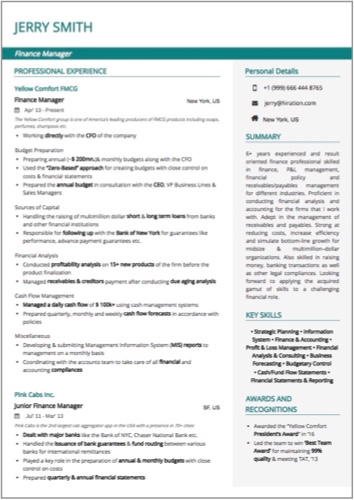
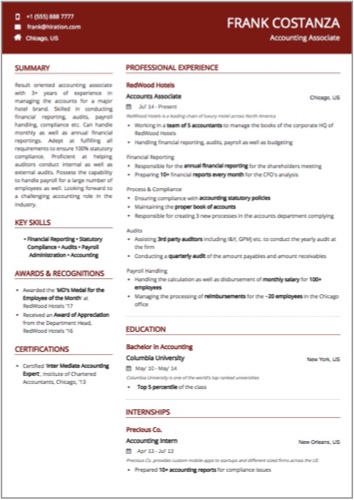







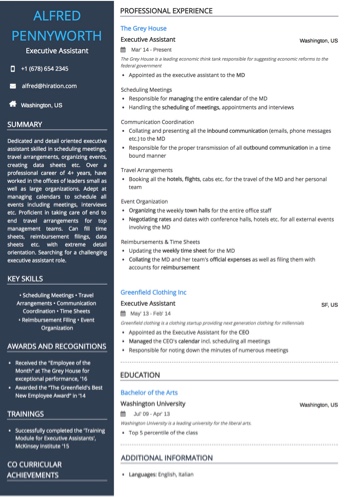
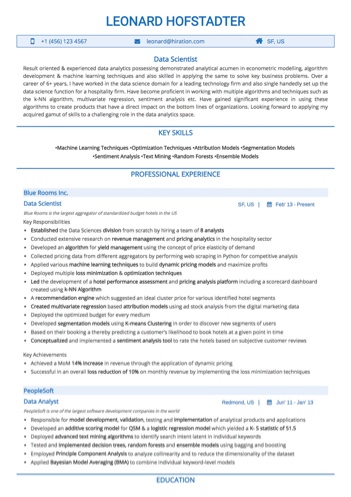





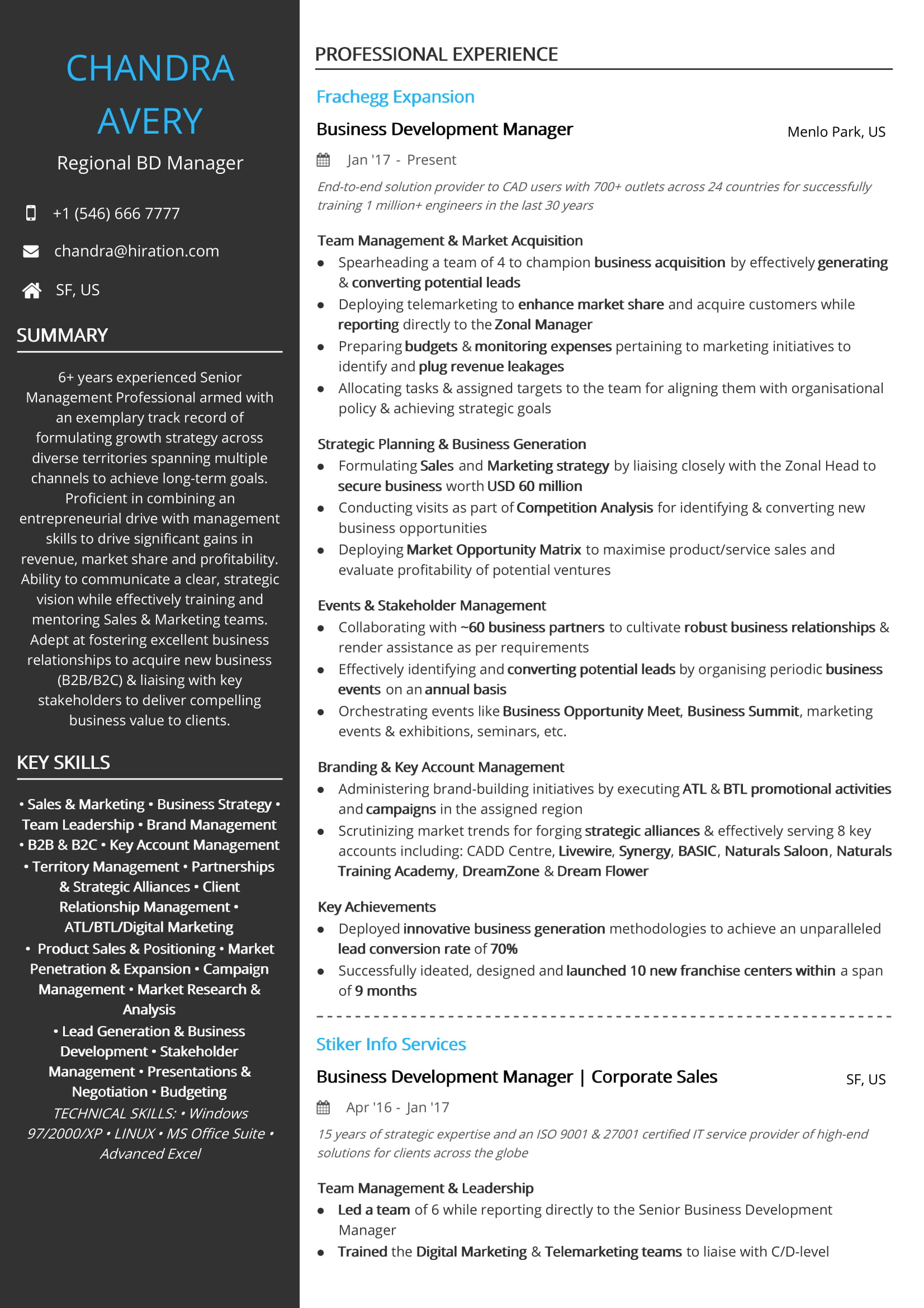

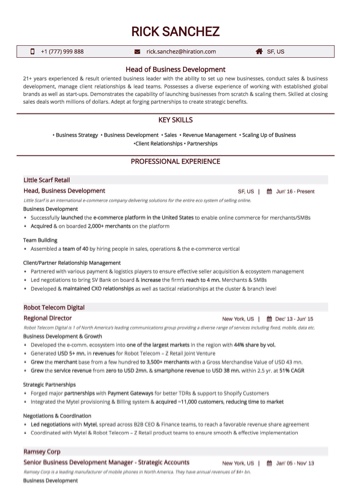

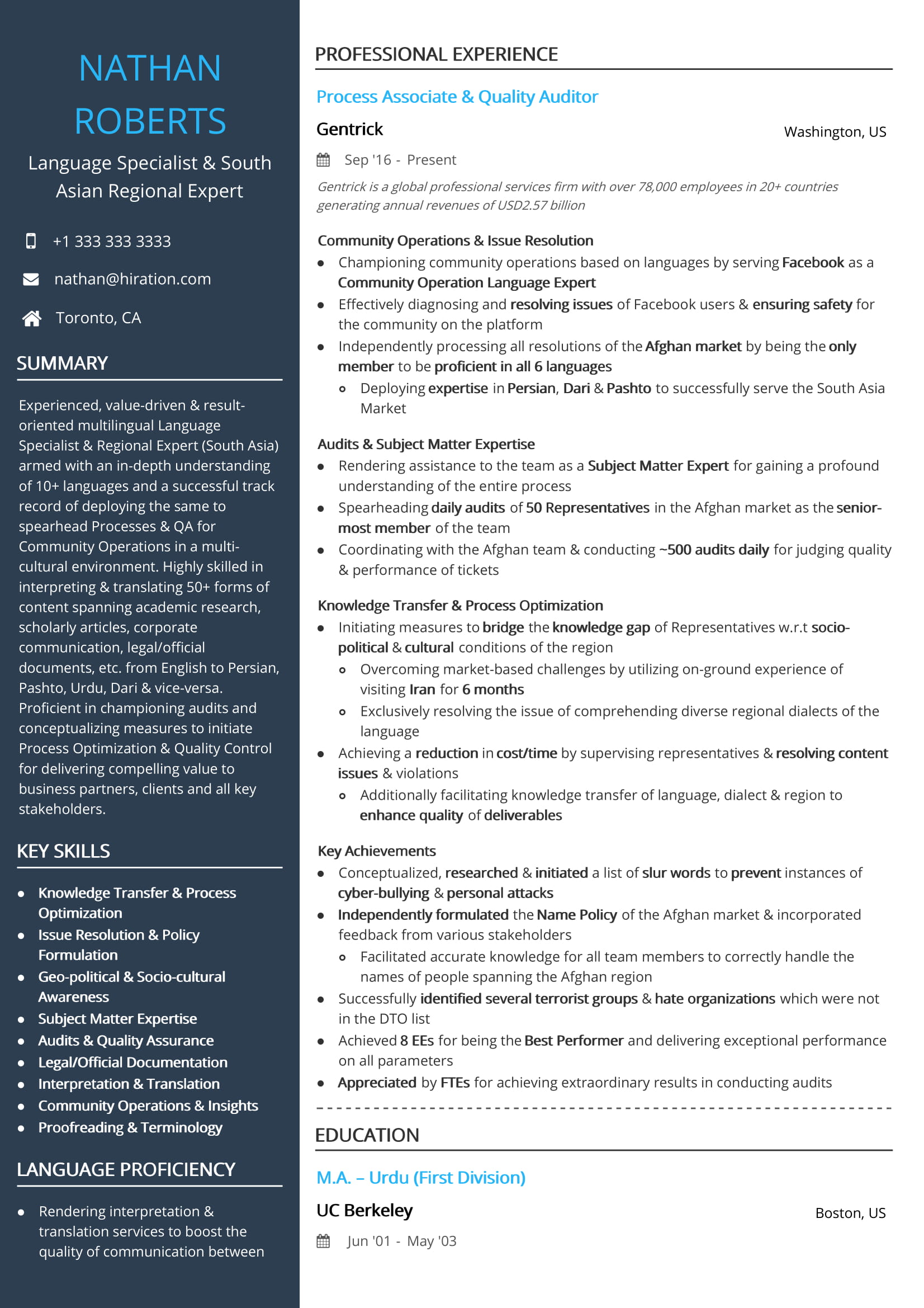


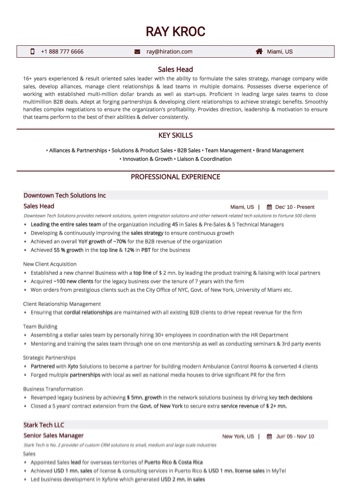


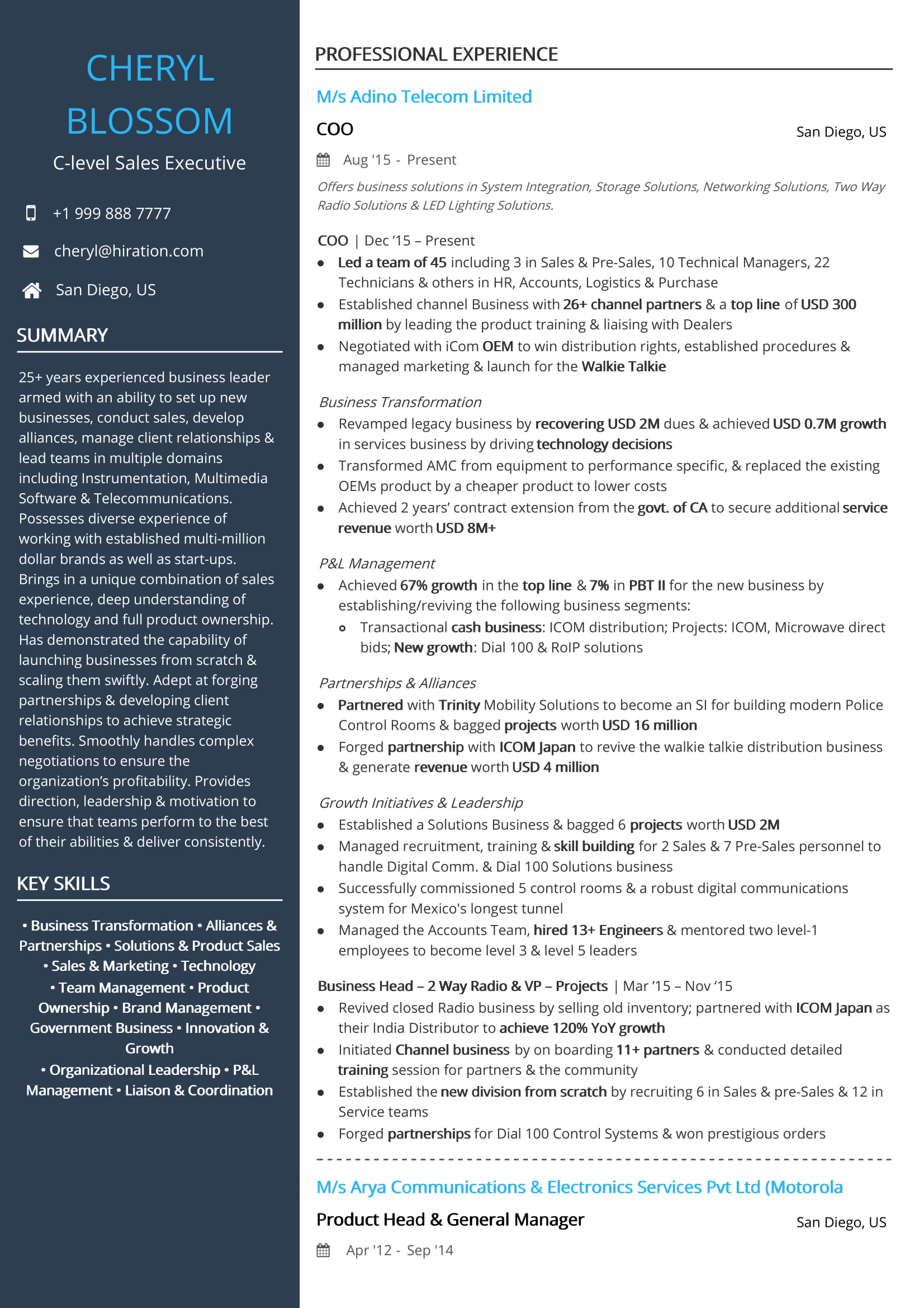

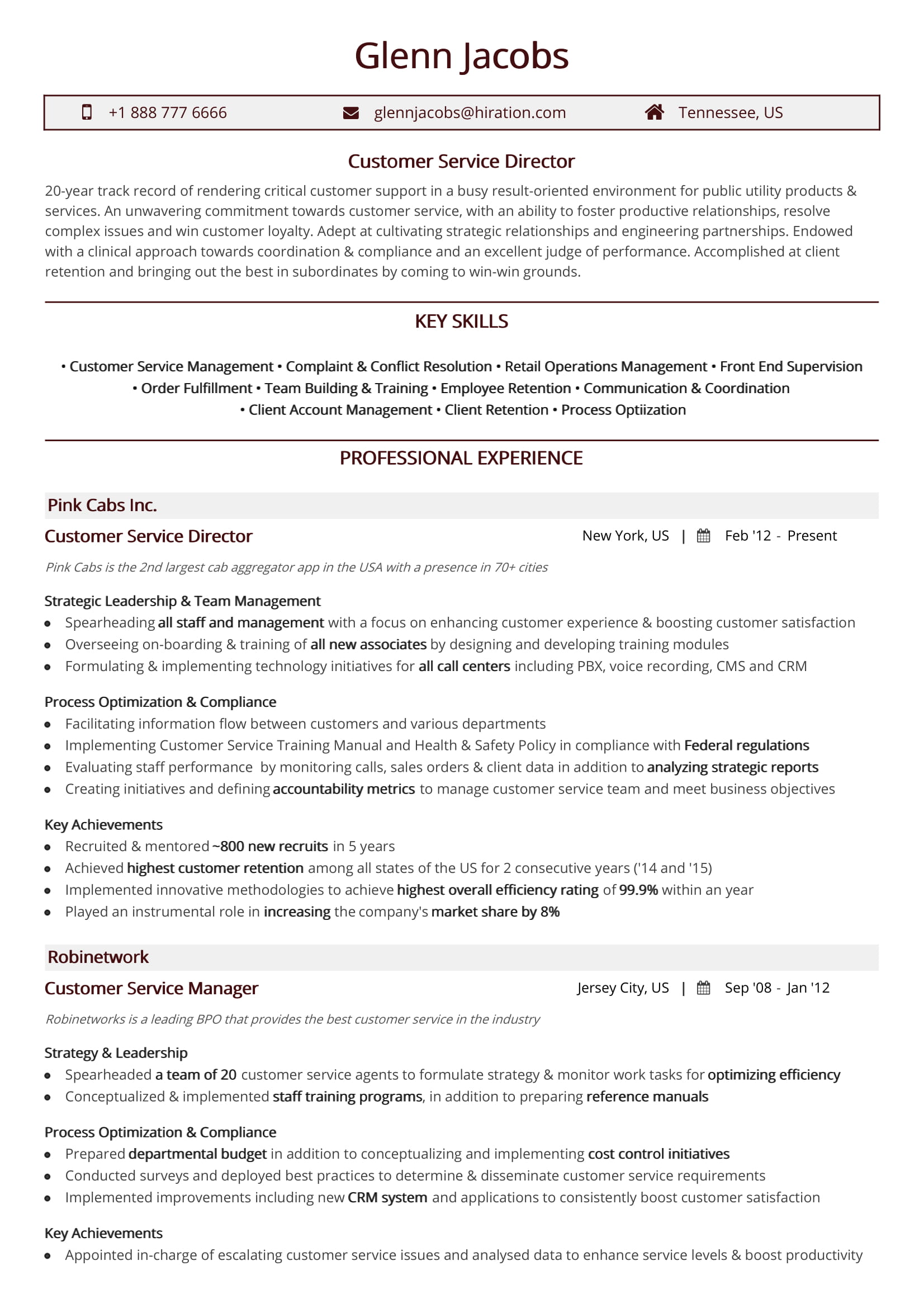




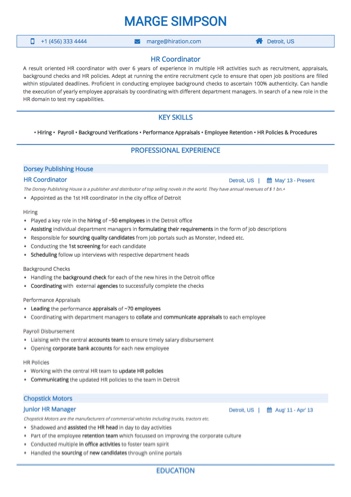
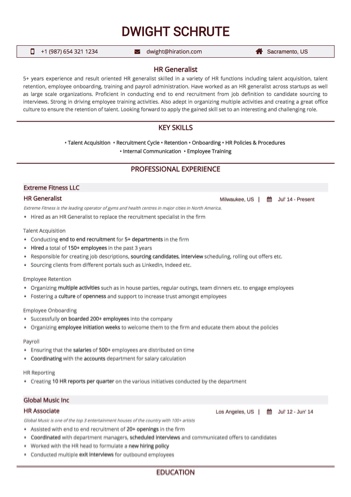


/Public_Relations_Associate.jpg)
